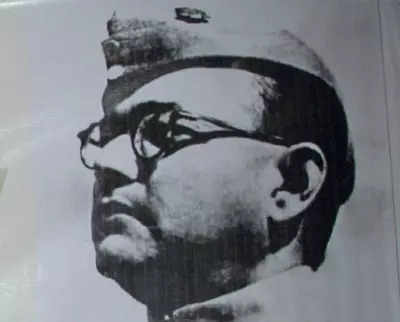Netaji Subhash Chandra Bose Biography, Family, Education, Death – Times of India
Netaji Subhash Chandra Bose was an Indian nationalist leader who was a key figure in the Indian independence movement against British rule. He was born on January 23, 1897, in Cuttack, Orissa, India, to Janakinath Bose and Prabhavati Devi. He came from a well-educated and affluent family, and his father was a lawyer and a prominent leader in the Indian National Congress.
Bose received his early education at a local school in Cuttack, and later attended Protestant European School in the city. He then went on to study at Ravenshaw Collegiate School in Cuttack. In 1913, he passed the matriculation examination and in 1915, he passed the Intermediate Examination with a scholarship. In 1916, Bose passed the entrance examination for the University of Calcutta and was admitted to the Presidency College where he studied philosophy.
Web Story: 10 Inspiration Quotes by Netaji Subhas Chandra Bose
In 1919, Bose graduated with a first class honors degree in philosophy and was awarded the prestigious Rajendra Prasad scholarship to study at Cambridge University. However, in 1920, he failed the Indian Civil Services Examination. In 1921, Bose was re-appeared for the Indian Civil Services Examination and passed, but resigned from his position in April 1921.
Bose then joined the Indian National Congress and actively participated in the Indian independence movement. He was a close associate of Mahatma Gandhi and Jawaharlal Nehru, but later broke away from them due to ideological differences. In 1939, he formed the Forward Bloc, an organization aimed at unifying all the anti-British forces in India.
During World War II, Bose formed the Indian National Army (INA) with the help of the Japanese, and attempted to overthrow British rule in India through an armed rebellion. However, the rebellion was unsuccessful and Bose was arrested by the British. He subsequently escaped from prison and fled to Germany, where he formed the Free India Centre and the Indian Legion, a group of Indian soldiers who fought alongside the German army.
In 1943, Bose left Germany and travelled to Japan, where he formed the Azad Hind Government and declared war against the British. He also formed the Indian National Army (INA) which fought alongside the Japanese in the Burma campaign.
In August 1945, Bose was killed in a plane crash in Taiwan. The exact circumstances of his death are still shrouded in mystery and controversy, with some believing that he may have faked his own death.
Bose was a charismatic leader who was deeply committed to the cause of Indian independence. He is remembered as a national hero in India, and his legacy continues to inspire many Indians to this day.
Bose received his early education at a local school in Cuttack, and later attended Protestant European School in the city. He then went on to study at Ravenshaw Collegiate School in Cuttack. In 1913, he passed the matriculation examination and in 1915, he passed the Intermediate Examination with a scholarship. In 1916, Bose passed the entrance examination for the University of Calcutta and was admitted to the Presidency College where he studied philosophy.
Web Story: 10 Inspiration Quotes by Netaji Subhas Chandra Bose
In 1919, Bose graduated with a first class honors degree in philosophy and was awarded the prestigious Rajendra Prasad scholarship to study at Cambridge University. However, in 1920, he failed the Indian Civil Services Examination. In 1921, Bose was re-appeared for the Indian Civil Services Examination and passed, but resigned from his position in April 1921.
Bose then joined the Indian National Congress and actively participated in the Indian independence movement. He was a close associate of Mahatma Gandhi and Jawaharlal Nehru, but later broke away from them due to ideological differences. In 1939, he formed the Forward Bloc, an organization aimed at unifying all the anti-British forces in India.
During World War II, Bose formed the Indian National Army (INA) with the help of the Japanese, and attempted to overthrow British rule in India through an armed rebellion. However, the rebellion was unsuccessful and Bose was arrested by the British. He subsequently escaped from prison and fled to Germany, where he formed the Free India Centre and the Indian Legion, a group of Indian soldiers who fought alongside the German army.
In 1943, Bose left Germany and travelled to Japan, where he formed the Azad Hind Government and declared war against the British. He also formed the Indian National Army (INA) which fought alongside the Japanese in the Burma campaign.
In August 1945, Bose was killed in a plane crash in Taiwan. The exact circumstances of his death are still shrouded in mystery and controversy, with some believing that he may have faked his own death.
Bose was a charismatic leader who was deeply committed to the cause of Indian independence. He is remembered as a national hero in India, and his legacy continues to inspire many Indians to this day.
For all the latest Education News Click Here
For the latest news and updates, follow us on Google News.
Denial of responsibility! TheDailyCheck is an automatic aggregator around the global media. All the content are available free on Internet. We have just arranged it in one platform for educational purpose only. In each content, the hyperlink to the primary source is specified. All trademarks belong to their rightful owners, all materials to their authors. If you are the owner of the content and do not want us to publish your materials on our website, please contact us by email – [email protected] The content will be deleted within 24 hours.


